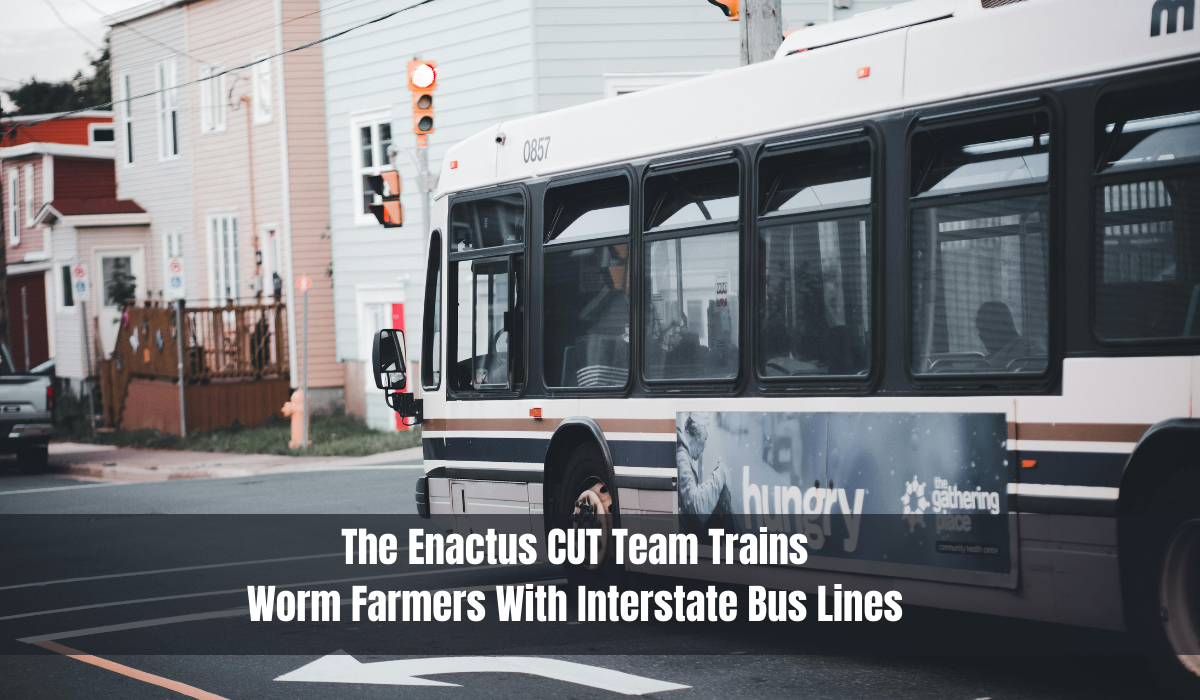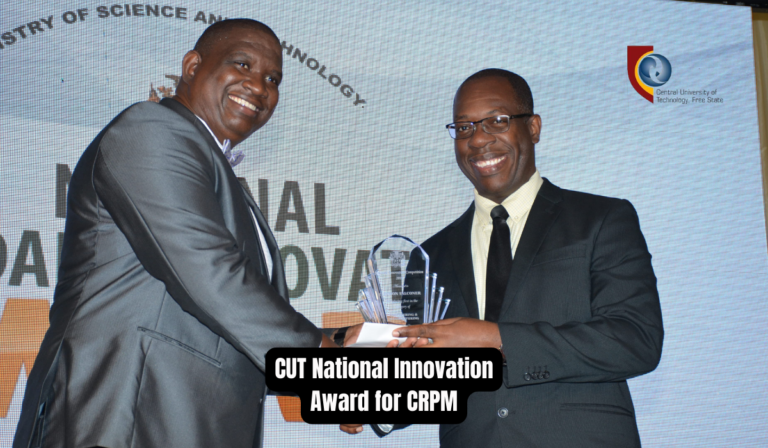The Enactus CUT Team Trains Worm Farmers With Interstate Bus Lines

The Enactus CUT Team Trains Worm Farmers With Interstate Bus Lines. Enactus CUT a champion of sustainability, has teamed up with Interstate Bus Lines to advance their sustainable initiatives by training the fifth cohort of aspiring worm farmers from Thaba-Nchu. This partnership underscores the increasing recognition of worm farming as a crucial component of sustainable practices.
Read Also: Cut Status Check Online
Importance of Worm Farming
Worm farming, scientifically known as Vermitechnology, has emerged as a potent and sustainable solution to various environmental challenges. It not only addresses the issue of organic waste but also produces nutrient-rich compost that enhances soil fertility and boosts agricultural yields. One of its key advantages is its scalability, making it accessible to individuals and communities with limited resources.
Enactus CUT Sustainable Initiatives
Enactus CUT has been at the forefront of promoting worm farming in the Free State region. Over the past months, the organization has undertaken several interventions to educate and train communities, particularly farmers, in the art of worm farming. These efforts have not only reduced waste in the community but have also empowered individuals to generate income through the sale of worms and worm castings.
Partnership with Interstate Bus Lines
Interstate Bus Lines, a prominent transportation company in Bloemfontein, has shown its commitment to sustainability by sponsoring ten farmers from Thaba-Nchu to attend worm farming training. The company has pledged R 2000.00 per farmer, demonstrating its dedication to supporting sustainable practices and community development.
Mr Vuyo Ondala Statement
Mr Vuyo Ondala, the Stakeholder Relations Manager at Interstate Bus Lines, expressed his satisfaction with the collaboration, highlighting the comprehensive nature of the training provided. He emphasized that the training covered various aspects of worm farming, including composting, business management, setting up and managing worm farms, sourcing worms, and harvesting nutrient-rich compost. The training also included modules on marketing and selling worm-related products, essential components for any business venture.
Benefits of Worm Farming
Worm farming offers numerous benefits, making it a business with significant potential. These benefits include waste reduction, soil enrichment, income generation, sustainable agricultural practices, and educational and empowerment opportunities for individuals and communities.
Ms Maraka Lefera Perspective
Ms Maraka Lefera, Co-Faculty Advisor at Enactus CUT, highlighted the partnership with Interstate Bus Lines as a prime example of how the public and private sectors can collaborate to drive positive change. She stressed the importance of embracing worm farming as a business, citing its potential to reduce waste, improve agricultural practices, and create economic opportunities.
FAQS: The Enactus CUT Team Trains Worm Farmers With Interstate Bus Lines
Q1:What is worm farming?
Ans: Worm farming, or Vermitechnology, is the practice of using worms to convert organic waste into nutrient-rich compost, benefiting soil and agriculture.
Q2: Why is worm farming important?
Ans: Worm farming reduces waste, improves soil fertility, boosts agricultural yields, and provides economic opportunities, particularly in resource-limited communities.
Q3:How can I get involved in worm farming?
Ans: You can start by learning basic worm farming techniques and setting up a small-scale worm farm. Joining community initiatives or seeking training programs can also be helpful.
Conclusion
The collaboration between Enactus CUT and Interstate Bus Lines exemplifies the power of partnerships in driving sustainable practices and community development. By embracing worm farming, communities and companies can contribute to waste reduction, soil enrichment, and economic empowerment, ultimately building a better world for all.






